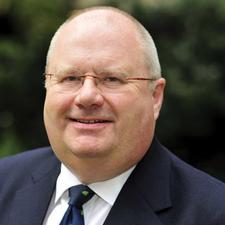From: Local Transport Today
Ban on CCTV enforcement tops Pickles’ list of parking reforms
Andrew Forster
The Government is to ban the
use of mobile and static CCTV cameras for enforcing parking rules in England,
claiming councils are using the technology to raise revenues. Communities and
local government secretary Eric Pickles announced that the ban would come in
early next year, once secondary legislation has been passed.
The Local Government
Association has criticised the plans. Tony Ball, vice chairman of the LGA’s
economy and transport board, said: “Camera cars have been instrumental in
keeping children from being hurt or killed on the way to school and CCTV plays
an important role elsewhere in monitoring traffic flow and keeping cars
moving.”
Explaining his proposals to
the BBC, Pickles disputed the suggestion that the cameras were primarily being
used for road safety purposes. “It’s okay for local authorities to say: ‘Oh,
it’s all to save the children’,” he said. “No it isn’t. What this is about is
raking in pretty large sums of money to fill the council’s coffers. The law is
pretty clear, it says you’re not allowed to do that.”
Pickles said councils could
continue to enforce parking restrictions in other ways. “How about a traffic
warden with a camera? That might work.”
Transport secretary Patrick McLoughlin and Pickles teamed up last week to
announce a package of parking reforms would be published in due course
including:
-
stopping CCTV being used for on-street parking enforcement
-
new open data on parking to allow the public to ‘go compare’
There will also be proposals for consultation on:
-
updating parking enforcement guidance to support local shops
-
tackling wrongly-issued fines
-
stopping unacceptable parking fine collection practices
-
reviewing unnecessary yellow lines and the scope for residents’ reviews
-
reviewing the grace period for parking offences
-
clamping down on anti-social driving and encouraging social responsibility
-
spreading best practice on supporting town centres and tackling illegal parking
-
analysis of the impact of different transport policies on town centre vitality
“Previously ill thought-out
policies have led to an increase in congestion and parking problems on our
streets,” said McLoughlin. “By making sensible changes such as providing more
parking spaces for local shoppers we can help ease traffic flow whilst
supporting our vibrant high streets. Arbitrary parking rules force shoppers
online or to out-of-town stores, causing lasting damage to local firms and small
shops.”
Campaign for Better Transport chief executive Stephen
Joseph this week criticised the plans. In a letter to LTT he says
Pickles’ belief that relaxations to parking policies will help struggling high
streets is flawed. “It is a plan based on populist anecdote and an imagined past
rather than evidence or planning for the high streets that people really want.
Trying to give cars further dominion over our high streets will not change this,
nor will it create the kind of environment which will attract shoppers
back.”
We say:
Of course Pickles is right. For a start on plain yellow lines parked vehicles must be timed and drivers given time. It's kerb stripes that ban stopping at all for a start.
CCTV cannot do times or see details and faults or even disabled badges. Tickets on windscreens are essential to allow drivers to see what they have done there and then, and take notes or photos and check timings and so on for a defence. CCTV prevents drivers from defending against the ticket which arrives weeks later and so is totally wrong.
---------------------------------
 Pickles: cameras ‘used to raise cash’
Pickles: cameras ‘used to raise cash’
No comments:
Post a Comment